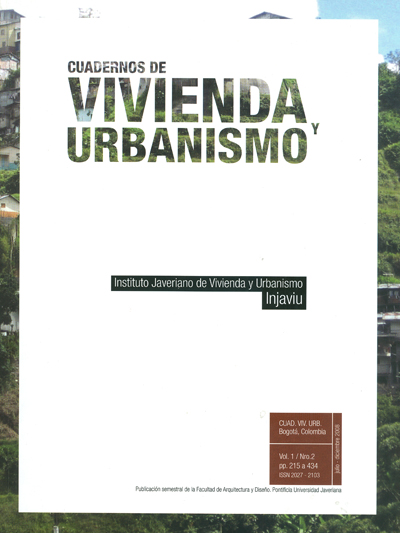Resumen
La diversidad de lecturas sobre la informalidad es el punto de partida del presente artículo, que pretende hacer una mirada de este fenómeno desde la sociología de lo cotidiano. En este sentido, plantea la transición desde la informalidad entendida como problema, hacia la informalidad como espacio de construcción de la vida social, a través del examen de las manifestaciones del fenómeno en el contexto del comercio informal. Con este fin, propone el acercamiento a las prácticas cotidianas de actores individuales y sujetos colectivos y la construcción teórica del concepto, mediante la exploración de su trayectoria en el campo académico, con el fin de lograr una conceptualización que contribuya a la formulación de políticas públicas incluyentes para la ciudad. El artículo constituye entonces un aporte desde la sociología urbana, política y jurídica, que invita a generar miradas complejas de la informalidad, tanto en el ámbito académico como en el ámbito de la administración pública.
Esta revista científica se encuentra registrada bajo la licencia Creative Commons Reconocimiento 4.0 Internacional. Por lo tanto, esta obra se puede reproducir, distribuir y comunicar públicamente en formato digital, siempre que se reconozca el nombre de los autores y a la Pontificia Universidad Javeriana. Se permite citar, adaptar, transformar, autoarchivar, republicar y crear a partir del material, para cualquier finalidad (incluso comercial), siempre que se reconozca adecuadamente la autoría, se proporcione un enlace a la obra original y se indique si se han realizado cambios. La Pontificia Universidad Javeriana no retiene los derechos sobre las obras publicadas y los contenidos son responsabilidad exclusiva de los autores, quienes conservan sus derechos morales, intelectuales, de privacidad y publicidad.
El aval sobre la intervención de la obra (revisión, corrección de estilo, traducción, diagramación) y su posterior divulgación se otorga mediante una licencia de uso y no a través de una cesión de derechos, lo que representa que la revista y la Pontificia Universidad Javeriana se eximen de cualquier responsabilidad que se pueda derivar de una mala práctica ética por parte de los autores. En consecuencia de la protección brindada por la licencia de uso, la revista no se encuentra en la obligación de publicar retractaciones o modificar la información ya publicada, a no ser que la errata surja del proceso de gestión editorial. La publicación de contenidos en esta revista no representa regalías para los contribuyentes.


